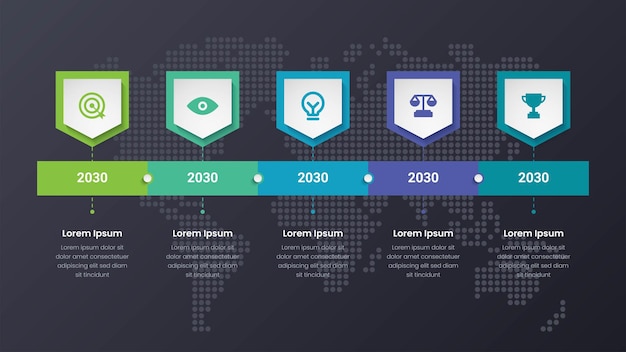New Data Privacy Regulations: What US Businesses Need to Know by 2025

Anúncios
New Federal Regulations on Data Privacy Expected to Impact Businesses by January 2025 will likely require significant adjustments to data handling practices, potentially affecting all US companies by mandating enhanced consumer data protection measures and stricter compliance protocols.
Get ready for a shake-up in data privacy! The upcoming New Federal Regulations on Data Privacy Expected to Impact Businesses by January 2025 are set to redefine how US companies handle personal data. It’s time to understand what’s coming and how to prepare.
Anúncios
Understanding the Impending Federal Data Privacy Regulations
The landscape of data privacy is ever-evolving, and businesses operating in the United States need to stay ahead of the curve. The impending New Federal Regulations on Data Privacy Expected to Impact Businesses by January 2025 represent a significant shift in how personal data must be handled, stored, and protected.
Understanding the nuances of these regulations is not just a matter of compliance; it’s about building trust with customers and maintaining a competitive edge in an increasingly data-driven world.
Key Provisions of the New Regulations
These new regulations are expected to encompass a wide range of provisions designed to enhance consumer data privacy. Here are some potential key areas:
- Data Minimization: Companies will likely be required to collect only the data that is absolutely necessary for a specified purpose.
- Purpose Limitation: The use of collected data will be strictly limited to the purpose disclosed to the consumer.
- Enhanced Transparency: Businesses will need to provide clear and accessible information about their data collection and usage practices.
- Data Security: Robust security measures will be mandated to protect personal data from unauthorized access, use, or disclosure.
Anúncios
These provisions collectively aim to empower consumers with greater control over their personal information and hold businesses accountable for their data handling practices.
Why These Regulations Matter for Your Business
The New Federal Regulations on Data Privacy Expected to Impact Businesses by January 2025 aren’t just another set of rules; they’re a game-changer. Ignoring or underestimating their significance could expose your business to hefty fines, reputational damage, and even legal action.
But beyond the potential penalties, these regulations offer an opportunity to strengthen customer relationships and build a more ethical and sustainable business model.

Avoiding Costly Penalties
Non-compliance with data privacy regulations can result in significant financial repercussions. Fines can range from thousands to millions of dollars, depending on the severity and scope of the violation.
Investing in compliance now can prevent these costly penalties and protect your bottom line.
Building Customer Trust and Loyalty
In today’s digital age, consumers are increasingly concerned about their data privacy. By adhering to these new regulations, you can demonstrate your commitment to protecting their personal information.
This can foster trust and loyalty, leading to stronger customer relationships and increased business success.
Preparing Your Business for the New Data Privacy Landscape
Preparing for the New Federal Regulations on Data Privacy Expected to Impact Businesses by January 2025 requires a proactive and comprehensive approach. It’s not enough to simply update your privacy policy; you need to fundamentally re-evaluate your data handling practices.
This involves assessing your current level of compliance, identifying areas for improvement, and implementing the necessary changes to meet the new regulatory requirements.
Conducting a Data Privacy Audit
The first step in preparing for the new regulations is to conduct a thorough data privacy audit. This involves mapping out all the personal data your business collects, how it’s used, where it’s stored, and who has access to it.
This audit will help you identify any gaps in your compliance and prioritize areas for improvement.
Implementing Robust Security Measures
Data security is a critical component of data privacy compliance. You need to implement robust security measures to protect personal data from unauthorized access, use, or disclosure.
This includes:
- Encryption: Encrypting sensitive data both in transit and at rest.
- Access Controls: Implementing strict access controls to limit who can access personal data.
- Regular Security Audits: Conducting regular security audits to identify and address vulnerabilities.
- Employee Training: Providing ongoing training to employees on data security best practices.
By implementing these measures, you can significantly reduce the risk of a data breach and protect your customers’ personal information.
The Role of Technology in Ensuring Compliance
Technology plays a crucial role in helping businesses comply with the New Federal Regulations on Data Privacy Expected to Impact Businesses by January 2025. A variety of tools and solutions are available to automate data privacy processes, enhance data security, and improve transparency.
Investing in the right technology can streamline your compliance efforts and reduce the risk of errors or omissions.
Data Loss Prevention (DLP) Software
DLP software helps prevent sensitive data from leaving your organization’s control. It monitors data in use, in motion, and at rest, and can detect and block unauthorized data transfers.
This can help you prevent data breaches and ensure compliance with data privacy regulations.

Consent Management Platforms (CMPs)
CMPs help you obtain and manage user consent for data collection and usage. They provide a centralized platform for users to express their preferences and allow you to track and enforce those preferences.
This is essential for complying with regulations that require explicit consent for data processing.
Data Discovery and Classification Tools
These tools help you identify and classify sensitive data across your organization. They can scan your systems and repositories to locate personal data and categorize it based on its sensitivity level.
This is crucial for understanding what data you have and how it needs to be protected.
Training and Education: Empowering Your Workforce
Compliance with the New Federal Regulations on Data Privacy Expected to Impact Businesses by January 2025 is not just a matter of technology and policies; it requires a well-trained and educated workforce. Employees need to understand their roles and responsibilities in protecting personal data.
Providing ongoing training and education is essential for creating a culture of data privacy within your organization.
Developing a Data Privacy Training Program
Your training program should cover the following topics:
- The key provisions of the new data privacy regulations.
- Your organization’s data privacy policies and procedures.
- Best practices for handling personal data.
- How to identify and report data privacy incidents.
The training should be tailored to the specific roles and responsibilities of different employees.
Promoting a Culture of Data Privacy
Creating a culture of data privacy requires more than just training; it requires ongoing communication and reinforcement. Regularly communicate data privacy updates and best practices to employees.
Encourage employees to ask questions and report any concerns they may have.
Looking Ahead: The Future of Data Privacy in the US
The New Federal Regulations on Data Privacy Expected to Impact Businesses by January 2025 are just the beginning. The landscape of data privacy is likely to continue to evolve in the years to come.
Staying informed about emerging trends and technologies is essential for maintaining compliance and building a sustainable business model.
The Rise of AI and Data Privacy
Artificial intelligence (AI) is increasingly being used to process and analyze personal data. This raises new challenges for data privacy, as AI algorithms can be opaque and difficult to understand.
Businesses need to ensure that their AI systems are transparent, accountable, and compliant with data privacy regulations.
The Growing Importance of Ethical Data Practices
Consumers are increasingly demanding that businesses use data in an ethical and responsible manner. This means being transparent about data practices, respecting user privacy, and using data for the benefit of society.
By adopting ethical data practices, you can build trust with customers and create a more sustainable business model.
| Key Aspect | Brief Description |
|---|---|
| 🔒 Data Minimization | Collect only necessary data. |
| 📝 Transparency | Be clear about data practices. |
| 🛡️ Security Measures | Protect data from breaches. |
| 🧑⚖️ Compliance | Stay updated on regulations. |
Frequently Asked Questions (FAQ)
▼
The New Federal Regulations on Data Privacy Expected to Impact Businesses by January 2025 are anticipated to be implemented by January 2025, but businesses should closely monitor for any changes to the enactment date. Ongoing vigilance ensures early preparation and compliance.
▼
These regulations will likely impact all businesses operating within the United States that collect, process, or store personal data. Certain exceptions may exist for smaller organizations, but all businesses must review the full scope.
▼
Penalties for non-compliance may include hefty fines, legal action, and damage to a company’s reputation. The exact amount of penalties may vary depending on the severity and scope of the privacy violation.
▼
Companies should conduct data privacy audits, implement robust security measures, invest in technology solutions, and prioritize employee training to prepare for federal data privacy regulations. It is useful to bring in expertise to ensure full coverage of the changes.
▼
Official government websites, legal resources, and industry publications are excellent sources. Consulting with data privacy experts can provide valuable insights and guidance as the New Federal Regulations on Data Privacy Expected to Impact Businesses by January 2025 roll out.
Conclusion
The New Federal Regulations on Data Privacy Expected to Impact Businesses by January 2025 herald a critical shift in how US companies approach data handling. Preparing for these changes involves a proactive, comprehensive strategy, integrating robust security, transparent practices, and ongoing employee education to build trust with consumers and ensure compliance in the evolving legal landscape.